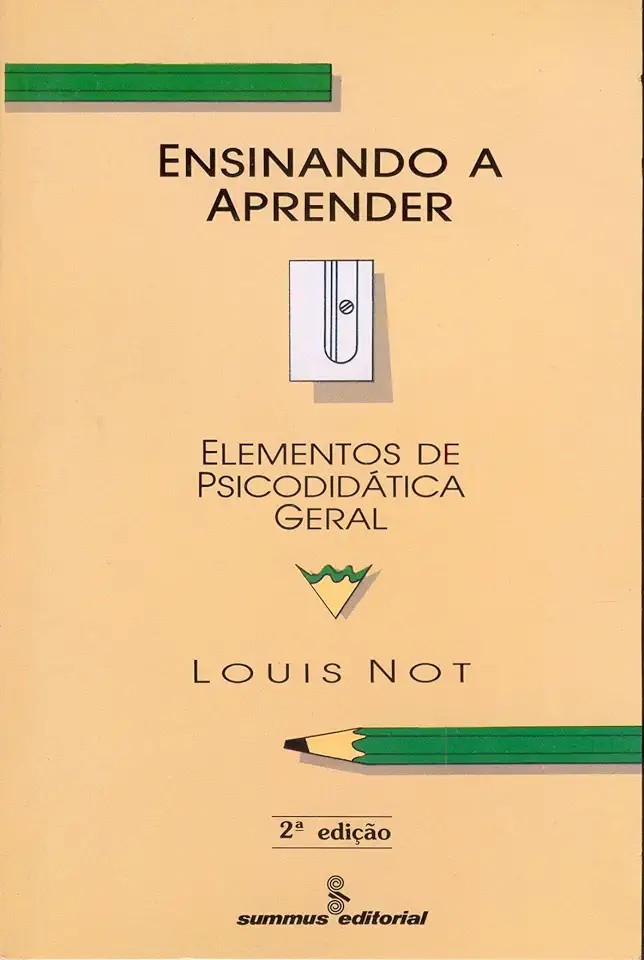
Teaching to Learn Elements of General Psycho-didactics - Louis Not
Teaching to Learn: Elements of General Psycho-didactics by Louis Not
In his groundbreaking book, "Teaching to Learn: Elements of General Psycho-didactics," Louis Not presents a comprehensive and thought-provoking exploration of the art and science of teaching. Drawing upon decades of research and experience, Not offers a unique perspective on the complex interplay between teaching and learning, challenging traditional notions and providing a wealth of practical insights for educators at all levels.
A Paradigm Shift in Education
Not begins by arguing for a fundamental shift in the way we think about education. He contends that the traditional focus on content transmission and rote learning is no longer sufficient in a rapidly changing world that demands critical thinking, creativity, and problem-solving skills. Instead, Not proposes a learner-centered approach that places the student at the heart of the educational process, emphasizing the development of cognitive skills and the cultivation of a love for learning.
The Elements of Psycho-didactics
Not introduces the concept of psycho-didactics, a term he coined to describe the intersection of psychology and education. He identifies four key elements of psycho-didactics that are essential for effective teaching:
Motivation: Not emphasizes the importance of understanding and nurturing the learner's motivation to learn. He explores various motivational strategies, including intrinsic motivation, extrinsic rewards, and the creation of a positive learning environment.
Cognition: Not delves into the cognitive processes involved in learning, such as perception, attention, memory, and problem-solving. He discusses how teachers can facilitate cognitive development by using appropriate teaching methods and materials.
Metacognition: Not introduces the concept of metacognition, or the ability to think about one's own thinking. He argues that metacognition is a crucial skill for lifelong learning and provides strategies for developing it in students.
Transfer: Not addresses the challenge of transferring learning from one context to another. He explores various techniques for promoting transfer, such as providing opportunities for practice, using real-world examples, and encouraging students to make connections between different areas of knowledge.
Practical Applications and Case Studies
Throughout the book, Not provides numerous practical examples and case studies to illustrate his ideas. He draws upon his extensive experience as a teacher and researcher to offer concrete suggestions for implementing psycho-didactic principles in the classroom. These examples range from simple classroom activities to larger-scale educational reforms, demonstrating the wide-ranging applicability of Not's approach.
A Must-Read for Educators
"Teaching to Learn: Elements of General Psycho-didactics" is a must-read for educators of all levels, from classroom teachers to policymakers. Not's thought-provoking insights and practical guidance provide a roadmap for transforming education and empowering learners to reach their full potential. This book is an essential resource for anyone committed to creating a more engaging, effective, and learner-centered educational system.